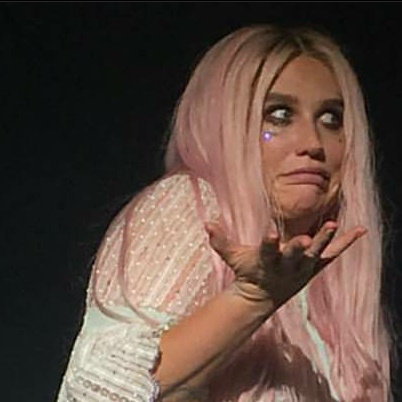You may think this means that only 5% of people, 1 in 20, will be able to have kids. But actually, it takes two, and if there’s no way to predict who can and cannot, it becomes closer to 1 in 400. The 1/20 chance of the male partner being fertile is multiplied by the 1/20 chance of the female partner being fertile.
It’s difficult to prove someone infertile, but if someone can conceive a child, that proves their fertility. This is of limited utility in the case of women, but I suppose a man of proven fertility could make a living as a stud, attempting to knock up eligible women. So once you’ve identified a population of fertile males, you knock that half of the equation back down to a 1/1 and the women can go back to the much better 1/20 odds. Of course, you’d need to re-identify potential studs over time from the newer generations as older ones die off. And unless each woman is having twenty daughters you’re still suffering from rapid population decline and the attendant societal collapse.
So, in summary: It’d be real bad, and even if it didn’t kill off humanity in a generation it probably would knock us back to the bronze age within a century. And even if we somehow manage to dodge that it will still change human society permanently in unpredictable ways.
I think that the population would just shrink. People would freak out for a month then it would become the new normal. And we’d handle it. And suddenly everything would be cheaper and lots of nice forests would grow.
the idea that population size is the driving force of ecological collapse is ecofascist. the world is being burned by a few hundred people, not the majority of the population.
Cons - lack of normal workforce replenishment ~18-20 years after plague would cripple economies, social safety nets and essential government spending (state pensions, road upkeep, military). Demographic would skew older and older with each year limiting democratic governments ability to pass any kind of rescue legislation until it’s too late (assuming an increasingly older population votes in their own interest, being unable to work to help fix massive labour shortages, as so defensively protect government programs for elderly that government can no longer afford)
Pros - I mean, what counts as a ‘pro’? Less pollution as the world economy collapses I guess…
A 100% planned economy could handle the labor/production problems.
A 100% planned economy has never worked, ever. And concentrating all that power in one place? Yeah that’ll end well.
100% central planning works for schools, corporations, farms, bicycle repair shops… It works very well.
If you think that an economy is special in this then you might want to check your sources. Consider who’s telling you that
The fact that you’re comparing bicycle repair shops to an entire country economy tells me pretty much all I need to know. Even in corporations, the unexpected successes tend to be the most surprising and profitable ones. Guess what? None of them are ever planned for, and none of them would have existed in a planned economy.
Good luck convincing everyone to democratically support the same authoritarianism that would be required to pull that off while everything slowly falls apart. It would be chaos.
democratically support the same authoritarianism
Did you see the US election results yet?
Half of America losing their minds and voting for a trump administration is in fact further proof you’d have civil war before you had a “100% planned economy”. People are provably irrationally selfish. Even in times of national emergency (cf covid etc)
We’d probably go full totalitarian first, plague second.
…nope
So brave
Pro: less overpopulation in the long term.
Cons:
-
more old than young people
-
economy collapses
-
society collapses
-
we’re done for basically
Why would the economy and society collapse?
Because they are both dependent on people who are no longer being born? The scenario is a population collapse, it’s going to have major consequences. The labor shortage alone would destroy the economy and upend society. Our civilization would look completely different within a generation.
We’d do a different economy and society then. Not democratic capitalism of course. Something with total centralized control.
Our present system is vastly inefficient. 99% of our energy is spent in competition and friction. If we got properly organized, supplying the population with everything it needs would be trivial. Doubly so with heavy automation.
I think a big flaw in your thinking is that you aren’t considering that we still have all the people currently living to take into consideration. We wouldn’t be instantly reduced to a tiny population that is easy to restructure and organize, there’s still like 8b people on the planet, and none of the ones in charge are going to just say, “oh, well I guess none of this matters anymore, let’s focus on sustainability”.
It would take a couple years for us to see a significant decrease in population, and all the while, those currently in power would remain in power. We wouldn’t suddenly drop to a few thousand like minded individuals, all ready to work together to rebuild. We’d be a declining population that is scared and clueless how to save itself, making mistake after mistake.
I agree with your point of inefficiency, but your estimation is way off. You are very lucky if you can triple efficiency with centralized control.
A 95% loss in workforce would catapult us back to the stone age where 50% of the population has the sole purpose of generating food.
No centrally planed economy has managed that before.
-
The world would be filled with old people.
You are thinking it would just be a gentle way to reduce population but even if women did artificial insemination to keep your 1/20 birthrate, the world as you know it needs a lot of people to run it - farmers, network engineers, maintaining all the systems that make your comfortable existence possible requires a baseline population with particular skills, of working age. There is a reason technology increased with population growth.
The natural world would be better off, probably. Humans would be in for a rough ride, and would probably die out.
A significant reduction in the population leads to better outcomes for the survivors. Mass death events in history, such as both world wars and the various pandemics, are usually (but not always) followed by a period of progress and prosperity.
Humans breed faster than their civilizations can keep up with and in the modern era scarcity is artificially created by arbitrary ownership of natural resources. Fewer people means more resources per person.
However if your hypothetical pandemic were to strike, it would create a problem the world has never encountered before (at least as far as I can find) so predicting what might happen is basically guess work. Given how violent brutes tend to be more successful in scarce environments, the outcome would be very grim.
What are the pros and cons of a disease that leaves people sterile? Uh.
Con: it’s a disease.
Pro: Group projects in school drop dramatically.
Assuming overpopulation, food shortages, war, starvation, suffering of billions. Depriving people of the power to reproduce seems the kinder path.






